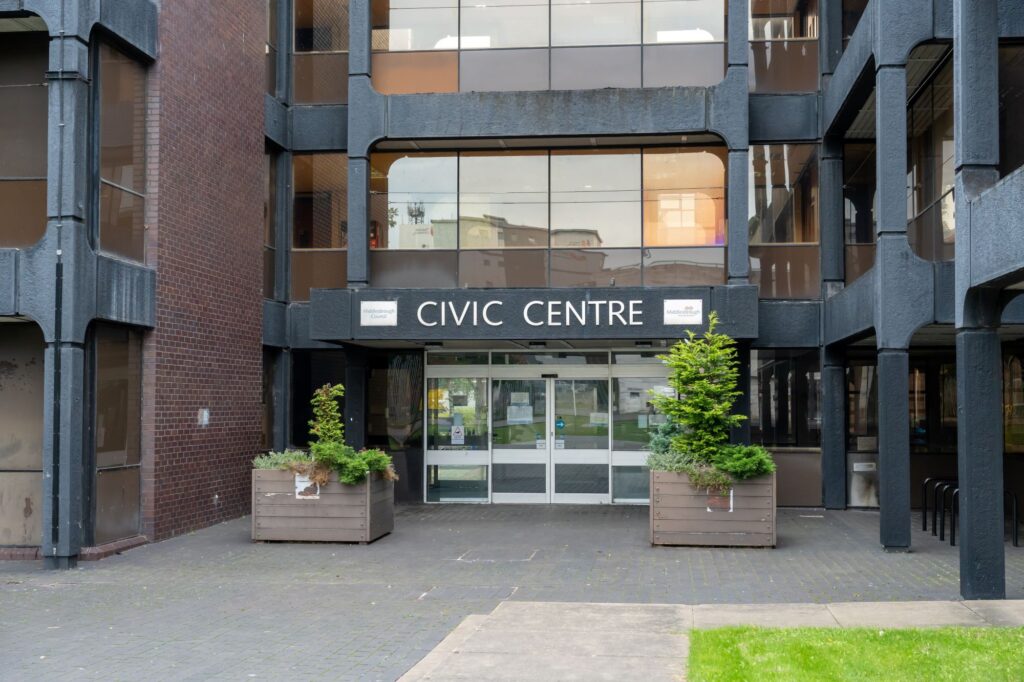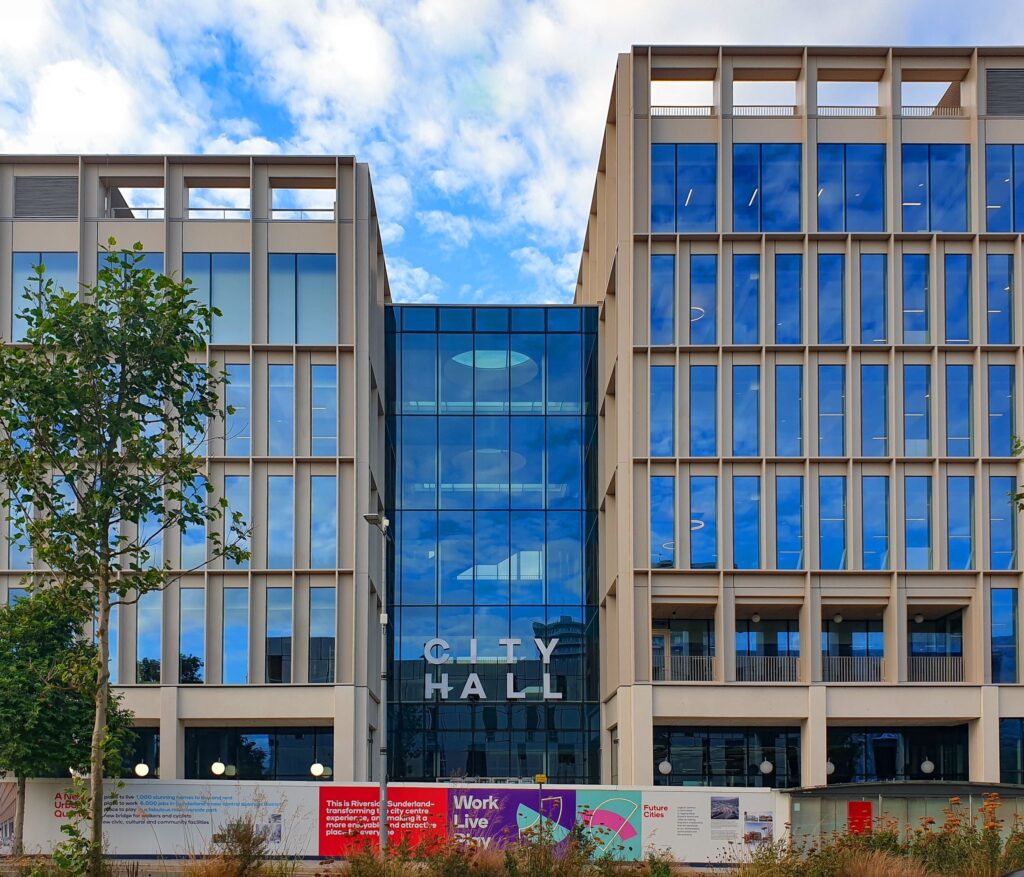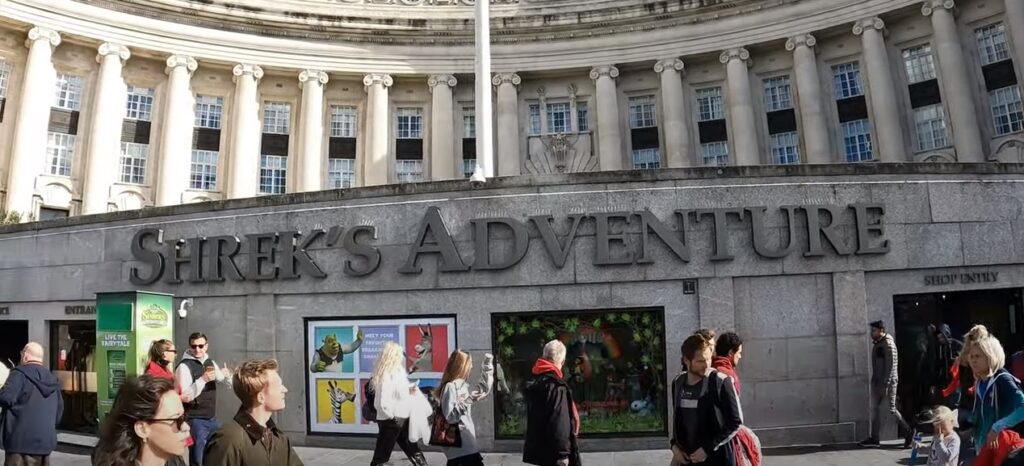
As the race for the regional mayoralties in Tees Valley and the North East hots up, it would be easy to forget the very existence of the 12 local councils that will continue to sit alongside them. It’s a paradox that while so much political energy is being invested in new regional tiers of governance, those institutions that we already have – some stretching back to Victorian times – are left to wither on the vine. How have we ended up in such a predicament?
At the end of the 19th century local councils were in their pomp, building social housing, fire stations, clinics, ambulance stations, bandstands, parks, street furniture, public toilets, schools, major engineering projects and more. The breadth of services provided was equally impressive – schools, welfare support, transport, gas, electricity, public health, hospitals and more. This settlement remained relatively undisturbed until 1945 when the nationalising Labour government took away local responsibility for gas and electricity and hospitals.
This still left councils as major local institutions throughout the post-war period until the 1980s, when the incoming Conservative government began to hollow-out their role and shift towards a model where the local authority was more of an agency doing the bidding of central government.
This assault on local democracy has been massive but often goes unrecognised. It has two principal components – loss of functions and loss of funding. Councils have been stripped of many of their primary service delivery roles, leaving them – at best – as one provider among many. The most striking instance is social care, where the provision of support for adults and children has been almost completely privatised since the 1980s.

A raft of other roles has also gone: schools and colleges to academies and free schools; the decimation of social housing through Right to Buy and the lack of permission to replace the stock. This leaves councils facing great difficulty in undertaking an ongoing strategic role – the classic trap of responsibility without power.
The loss of funding has constituted a slow strangulation, especially over the past 14 years, mainly through a real-terms cut of 40% in central government grants. Post-industrial areas in our region have suffered even higher reductions, and there is little that dependent local councils can do in response.
Of every £1 raised in taxation, 91p is controlled and allocated by central government, a degree of centralisation unseen anywhere else in the Western world. Lack of funding means local councils have no independent source of power and legitimacy, and end up bidding (often fruitlessly) for specific pots of money, or begging for a devolution deal with some funding attached. And a rarely acknowledged feature of local government in England is the absence of any constitutional protection – it only exists if central government allows it, again a feature rarely seen in other developed democracies.

The likelihood is that these massive changes have passed most people by, and they will still tend to blame local councils for problems whose cause lies elsewhere. This is not helped by the bewildering frequency of changes in structure and boundaries – new counties like Cleveland were created in 1974 and abolished in 1992; a sub-regional elected council for Tyne and Wear lasted for even fewer years; long-established district councils across Durham and Northumberland were swept away; a proposal for a North East England Assembly failed to get past a referendum; and now the only show in town seems to be regional mayoralties.
Meanwhile the widespread adoption of a cabinet model of local governance (as opposed to the old committee system) has left hundreds of ‘backbench’ councillors with only a residual role.
These long-term trends slowly work their way through and have consequences that are only now attracting attention as councils slide into insolvency and badly needed services disappear. Anyone involved in local government prior to the 1980s will surely look at its current state and weep. Here in the North East it is estimated that councils have a hole in their finances totalling £133 million, with the biggest funding gap at Gateshead (£30m) followed by Newcastle (£23m).
In Gateshead, the council is now having to spend around a quarter of its core income on debt repayments while Middlesbrough is at risk of joining the seven other councils across the country that have already declared themselves bankrupt.
Of every £1 raised in taxation, 91p is controlled and allocated by central government, a degree of centralisation unseen anywhere else in the Western world.
Bob Hudson
The government’s response to this crisis has been threefold. Firstly, to find some emergency funding that merely plasters over some of the cracks but fails to address the underlying problems. Secondly, councils have been given greater flexibility to sell off assets to cover deficits in day-to-day spending. Not only is this losing vital civic infrastructure – the classic ‘selling off the family silver’– but it only provides short-term relief that erodes longer-term sustainability. And finally, councils are being permitted to raise the highly regressive council tax by 5% – yet another central government cap that did not exist prior to the 1980s. And one proposed response to the smaller struggling councils is to abolish them rather than support them.
This leaves local councils in a parlous state where they are unable to do much more than meet their statutory obligations, and indeed may be unable even to fulfil the latter. In the case of children’s services, the cost-of- living crisis and rising poverty have led to increases in referrals for child protection, mental health help and family support, while the eye-watering cost of privately run children’s home placements has pushed many local authority children’s services to the brink.

The related field of special educational needs support is so overwhelmed that the government has put in place a ‘statutory override’ that takes this spending ‘off the books’ – a measure due to end in 2026 leaving a whopping £3.6 billion deficit. Meanwhile demand for adult care services has risen in recent years and the costs of delivering care have soared, forcing councils to tighten eligibility and create lengthy ‘waiting lists’ for care needs assessments. The ‘Barnet Graph of Doom’ drawn up in 2011 as an unlikely local authority apocalypse is now routine business.
All this matters hugely. While we are focusing on the novelty of regional mayors, the destruction of a layer of local governance that has served us well for almost 200 years gathers pace. The loss of our civic infrastructure is now impossible to ignore: libraries, museums, leisure facilities, playing fields, public toilets, community centres, parks, youth services and so much more. The civic glue that helped to give us a sense of community, belonging and pride are vanishing, with no obvious way back.

We can learn a lot about the decline and fall of local government simply by observing its architecture. Here in the North East we still have some of the finest Victorian town halls, monuments to the glory days of municipal power – South Shields still has one of the best; Sunderland rashly demolished a fine Victorian town hall and replaced it with a new civic centre that lasted less than 50 years before itself suffering the same fate – smaller premises were needed; Durham built the sprawling, brutalist County Hall in 1960, has now largely closed it prior to demolition, replaced it with an impressive riverside building that in turn has been sold off (before it was even occupied) to be replaced by modest accommodation elsewhere.
And strikingly in London, County Hall – once a citadel of local governance – is now occupied by Shrek’s Adventure.
As wisely observed in a wide-ranging analysis for the think tank, Open Democracy, ‘communities thrive best when those who serve them locally are accountable, engaged, listen to residents’ concerns and have a vision for their area with the power to implement it.’ With the best will in the world, local councils are struggling to achieve this aspiration. Instead, as John Harris has argued, we now have hundreds of local crises that add up to a national catastrophe.

Eyes glaze over at the very mention of the term ‘local government’ when we desperately need them to be wide open. There is still time for rescue. Proper funding is vital to plug the estimated £4 billion shortfall; different ways of financing local government could be explored ; and there is no shortage of ideas for placing councils back at the heart of a network of key local partners.
What is sadly lacking is political will and interest on the part of any of our major political parties. How can two centuries of largely honourable local democracy be so easily junked into the political graveyard?
Bob Hudson is Visiting Professor in Public Policy at the University of Kent. Bob was born and raised in Sunderland and lives in Durham.

Members of The Giving Network at the Community Foundation give as little as £30 a month and collectively have given £100,000 to help change lives.











